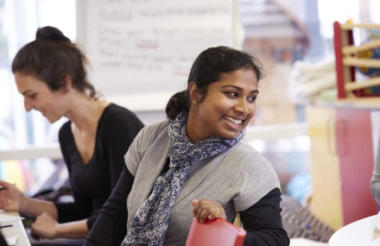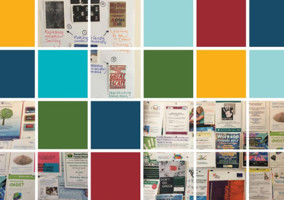At the start of this month I submitted LEAH’s response to the government’s Integrated Communities strategy green paper. I was hugely pleased and proud to do so.
Whilst I focused on it my to-do list loomed, full of actions relating to funding and projects, the stuff of immediate and real impact on the lives of our clients and volunteers, the community of which we are part. Everyone working in small charities will be familiar with the relentless operational requirements of sustaining much-needed services.
So as a small charity, why take the time to respond to a government consultation? Because we believe that sharing our experience is a vital part of being a community-based organisation. That means giving voice to our community, our fantastic local volunteers and the isolated women they support.
It also means sharing our experience of what we’ve found works (and what doesn’t) in running a small local organisation. Whilst much of our energies are used in listening to our community and improving what we do, we need to remember to take the time to lift our heads and share our experiences and vitally to listen to the experiences of others.
National and regional debate around key issues like integration must be informed by lived local experiences, and as LEAH supports isolated ethnic minority adults with low English levels in South West London we have some of this experience. We found we serve our local community better when we have strong, learning relationships with local and regional partners.
Sharing what works for us
This year we’re taking time to share the findings of a recent evaluation of our core service, our 1:1 home-based language support.
Our model brings together local residents to support new arrivals, enabling integration through the process as well as directly through the improved language skills of clients.
Our evaluation found that this model is effective because of the way it enables tailored support for clients, access to language support in a secure setting, and strong personal relationships between clients and volunteer tutors.
Our evaluators also showed us ways we can improve: in exploring ways to enable clients to progress more quickly, in supporting volunteers to engage with the organisation more deeply and in improving our communication with our community.
We’ve reflected on our local experience in our consultation response, and we’re inviting local MPs and Councillors to attend our small-group classes and hear more about our community and how we’re changing together.
We’ll also be sharing our perspective with our partners, for example with local funders, and through Kingston’s English for Speakers of Other Languages strategic group, including colleges and voluntary sector language providers locally.
We’re really excited too, to have been nominated as a runner-up in the FSI’s Small Charities BIG Impact Awards. It’s great for the hard work of our volunteers, staff and trustees to be recognised, but it’s also a platform to enable us to stand up for a moment, to speak and to share.
Related articles











